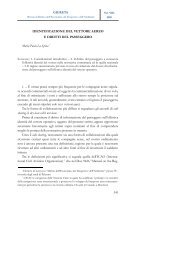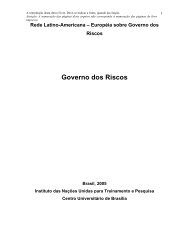The Old and the New Limits to Freedom of Contract in Europe
The Old and the New Limits to Freedom of Contract in Europe
The Old and the New Limits to Freedom of Contract in Europe
Create successful ePaper yourself
Turn your PDF publications into a flip-book with our unique Google optimized e-Paper software.
ERCL 2/2006 <strong>The</strong> <strong>Old</strong> <strong>and</strong> <strong>the</strong> <strong>New</strong> <strong>Limits</strong> <strong>to</strong> <strong>Freedom</strong> <strong>of</strong> <strong>Contract</strong> <strong>in</strong> <strong>Europe</strong><br />
263<br />
basics <strong>of</strong> liberal law, property rights <strong>and</strong> freedom <strong>of</strong> contract, <strong>and</strong> new <strong>in</strong>stances<br />
<strong>of</strong> civil rights protection <strong>and</strong> social justice. 12 <strong>The</strong> respect <strong>of</strong> <strong>the</strong> human<br />
be<strong>in</strong>g, on <strong>the</strong> one h<strong>and</strong>, <strong>and</strong> <strong>the</strong> market rationale, on <strong>the</strong> o<strong>the</strong>r h<strong>and</strong>, are <strong>the</strong><br />
two poles <strong>of</strong> a new set <strong>of</strong> <strong>in</strong>terpretive options <strong>in</strong> contract law. In this framework,<br />
<strong>the</strong> def<strong>in</strong>ition <strong>of</strong> limits <strong>of</strong> freedom <strong>of</strong> contract ma<strong>in</strong>ly overlaps with <strong>the</strong><br />
attempt <strong>to</strong> place general boundaries on <strong>the</strong> market realm. In o<strong>the</strong>r words,<br />
freedom <strong>of</strong> contract has <strong>to</strong> be restricted <strong>in</strong> order <strong>to</strong> establish a tight control<br />
over <strong>the</strong> supposedly <strong>in</strong>creas<strong>in</strong>g phenomenon <strong>of</strong> commodification <strong>of</strong> human<br />
be<strong>in</strong>gs (<strong>of</strong> personhood, human body, sexuality, etc). 13 And <strong>in</strong> this respect <strong>the</strong><br />
paternalist model is <strong>in</strong>herently flawed <strong>and</strong> bound <strong>to</strong> degenerate <strong>in</strong><strong>to</strong> <strong>the</strong> rival<br />
perfectionist model.<br />
More generally this model displays a basic deficiency: accord<strong>in</strong>g <strong>to</strong> paternalism,<br />
<strong>the</strong> person is unable, under certa<strong>in</strong> circumstances, <strong>to</strong> identify her/his<br />
own preferences; this basic assumption leads <strong>the</strong> law <strong>to</strong> hold <strong>the</strong> contract void<br />
even though <strong>the</strong> contract itself makes <strong>the</strong> party <strong>the</strong> law <strong>in</strong>tends <strong>to</strong> protect<br />
better <strong>of</strong>f. [A classic example from American contract law – Hill v Missouri<br />
Pacific Ry Co illustrates this. 14 After an accident at work Mr Hill promised <strong>to</strong><br />
cont<strong>in</strong>ue <strong>in</strong> his employment <strong>and</strong> <strong>to</strong> rel<strong>in</strong>quish any claim for <strong>the</strong> <strong>in</strong>juries he<br />
had suffered because <strong>of</strong> <strong>the</strong> accident. <strong>The</strong> railroad agreed <strong>to</strong> employ Hill<br />
until he was eligible for pension (about n<strong>in</strong>e years later). After some months,<br />
<strong>the</strong> railroad broke <strong>the</strong> promise <strong>and</strong> Hill brought suit <strong>to</strong> recover damages for<br />
breach <strong>of</strong> contract. <strong>The</strong> court held <strong>the</strong> contract <strong>to</strong> be void because it was<br />
made <strong>in</strong> violation <strong>of</strong> a statute prohibit<strong>in</strong>g adults <strong>to</strong> b<strong>in</strong>d <strong>the</strong>mselves <strong>to</strong> labour<br />
for terms longer than five years. <strong>The</strong> labour statute was evidently adopted as<br />
a protection <strong>of</strong> workers aga<strong>in</strong>st peonage; however, <strong>the</strong> read<strong>in</strong>g <strong>of</strong>fered by <strong>the</strong><br />
court turned it <strong>in</strong><strong>to</strong> ‘a shield beh<strong>in</strong>d which <strong>the</strong> employer might with impunity<br />
contract with its servants’. 15 In o<strong>the</strong>r words, <strong>the</strong> prohibition prevented employees<br />
from mak<strong>in</strong>g good deals, like <strong>the</strong> one assur<strong>in</strong>g <strong>the</strong> security <strong>of</strong> tenure<br />
<strong>in</strong> Mr Hill’s employment, though it was <strong>in</strong>tended <strong>to</strong> prevent a worker’s own<br />
exploitation.<br />
Recent Italian case law concern<strong>in</strong>g spouses’ agreements <strong>in</strong> contemplation <strong>of</strong><br />
divorce <strong>of</strong>fers ano<strong>the</strong>r significant example <strong>of</strong> such <strong>in</strong>consistency. By mak<strong>in</strong>g a<br />
private contract <strong>of</strong> this k<strong>in</strong>d, spouses want <strong>to</strong> arrange <strong>the</strong> economic consequences<br />
<strong>of</strong> divorce differently from <strong>the</strong> statu<strong>to</strong>ry regime, which is imposed<br />
12 With specific reference <strong>to</strong> <strong>the</strong> notion <strong>of</strong> ord<strong>in</strong>e pubblico <strong>in</strong> Italian law see U. Breccia,<br />
‘Causa’, <strong>in</strong> Alpa-Breccia-Liserre, Il contrat<strong>to</strong> <strong>in</strong> generale, t III, ‘Tratta<strong>to</strong> di dirit<strong>to</strong> priva<strong>to</strong>’<br />
diret<strong>to</strong> da Mario Bessone, XIII, (Tor<strong>in</strong>o: Giappichelli, 1999) 172.<br />
13 In <strong>the</strong> Italian literature see for example Breccia, n 12 above, 176 ff.<br />
14 8 F Supp 80 (W D La 1933).<br />
15 W. Gellhorn, ‘<strong>Contract</strong>s <strong>and</strong> Public Policy’ (1935) 35 Columbia Law Review 679.


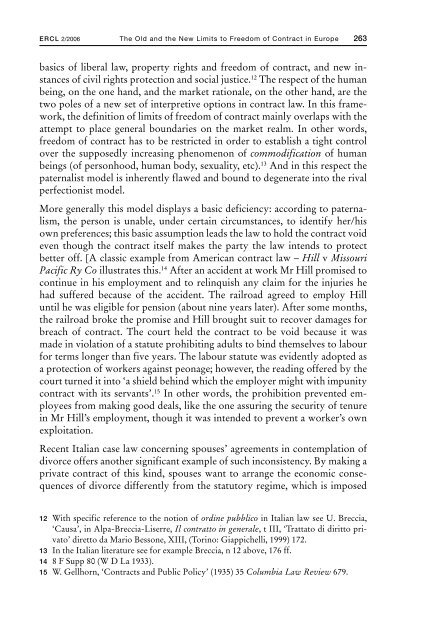
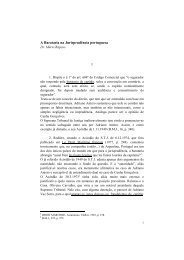


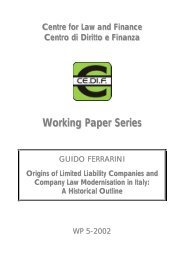
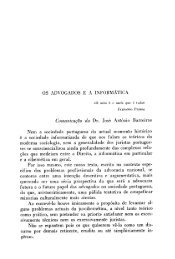
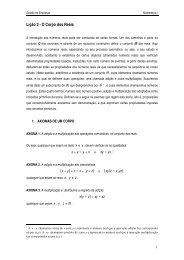

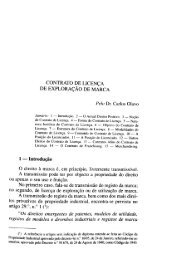
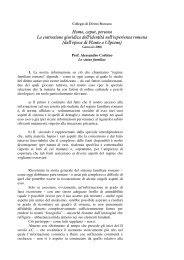
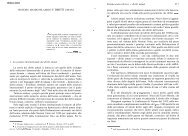

![Luigi Sapio Nozione di islām La parola “islām” [ ] è il mas.dar1 ...](https://img.yumpu.com/15836073/1/185x260/luigi-sapio-nozione-di-islam-la-parola-islam-e-il-masdar1-.jpg?quality=85)
